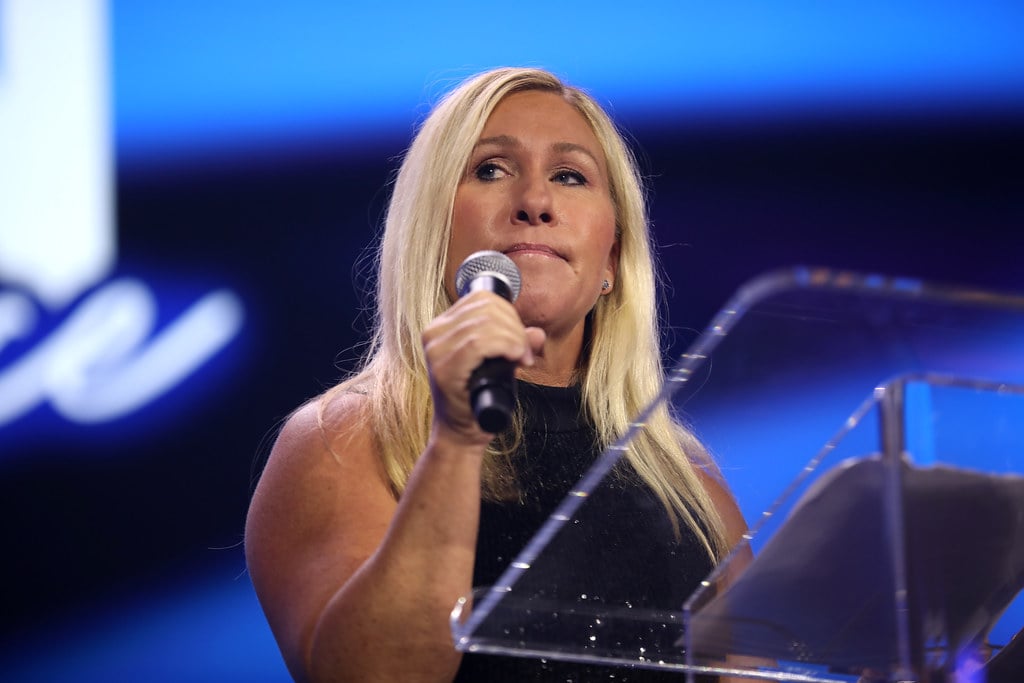Key Takeaways
- Representative Marjorie Taylor Greene will not endorse a successor in Georgia’s 14th District.
- Greene recently announced her retirement and has grown critical of President Trump.
- Her decision opens the door for Trump or local leaders to influence the primary.
- This move could reshape the GOP’s strategy ahead of the 2026 midterms.
Why Marjorie Taylor Greene Will Not Endorse
Representative Marjorie Taylor Greene said she won’t back anyone for her seat. She announced her retirement days ago. Since then, tensions with President Trump have risen. Greene criticized his handling of sensitive files and his economic policies. As a result, she told voters on her social feed that anyone claiming her support is mistaken. She wants her district to choose a representative on its own.
Greene wrote that she respects the people of Georgia’s 14th District. Therefore, she refuses to tip the scales toward any candidate. She believes local voters should decide who leads them next. By staying neutral, she hopes to avoid outside pressure or claims of unfair influence.
Marjorie Taylor Greene’s Impact on the GOP Primary
With Greene out of the endorsement game, the field to replace her is wide open. This could benefit former President Trump, who may push for his own pick. In fact, Politico reported that her step back “paves the way” for Trump to back a loyalist. Trump has already weighed in on other Republican races after Greene’s criticisms of him.
However, several local figures may also vie for the seat. State representatives, business leaders, and past officeholders are likely considering bids. Fundraising will start soon, and endorsements from local sheriffs or county commissioners could carry weight. Meanwhile, national GOP groups will watch closely to see who emerges as a front-runner.
What Comes Next for the Special Election
First, state officials will set a date for the special primary and general election. Candidates must file paperwork and meet eligibility rules. Then, debates and forums will give voters a chance to learn each candidate’s views. Public polling may begin once a few names stick out.
During this period, campaign ads will highlight key issues: the economy, national security, and local concerns like flood control. Potential candidates will need to show they understand both district needs and broader Republican goals. Given Greene’s popularity—she won her last race by 28 points—Republicans expect to hold the seat. Yet without her endorsement, the race may feel more open and competitive.
Tensions Between Greene and Trump
Over the past months, Marjorie Taylor Greene has become one of the former president’s loudest critics. She challenged Trump over the release of certain files, even pushing for a petition to make them public. She also slammed his economic plan, saying it harms working families.
These public clashes deepened their rift. Trump, in turn, may now look for a candidate who stands firmly by him. This contest could become a test of Trump’s sway within the GOP. If his chosen candidate wins, it will boost his claim as the party’s kingmaker. If not, it may reveal cracks in his base.
Local Leaders Seek Influence
County officials and business groups in Georgia’s 14th District are also key players. They can help with ground game, phone banks, and endorsements. Some may side with Trump’s pick, while others back lesser-known faces.
Grassroots activists will hold town halls and outreach events. Therefore, candidates must connect with voters on a personal level. They will need clear messages on taxes, jobs, public safety, and education. Smart campaign teams will blend digital ads with neighborhood meetups.
How This Shapes the 2026 Midterms
Looking beyond one seat, Greene’s decision may set a pattern for other retiring members. If more lawmakers refuse endorsements, primaries could see more surprises. Moreover, Trump’s influence may grow or shrink based on these outcomes.
For the GOP, winning Georgia’s 14th is crucial. A loss would signal trouble in safe districts. A win by a Trump-backed candidate would reinforce his hold. Meanwhile, Democrats will watch closely and may field a strong challenger. They could use the open-seat narrative to energize their base.
Key Dates and Next Steps
- Filing Window Opens: Candidates submit official paperwork.
- Special Primary: Voters pick their party’s nominee.
- General Special Election: The top candidates face off.
- Transition Period: New representative prepares to take office.
Campaign teams will watch fundraising totals, endorsements, and polling numbers. Voter registration drives will ramp up as both sides aim to lock in supporters before election day.
FAQs
What prompted Marjorie Taylor Greene to retire?
She cited ongoing tensions with President Trump and said she wants to honor her district’s choice for a new representative.
Will Trump endorse someone for the open seat?
While Trump may back a candidate, Greene’s neutrality leaves the door open for local leaders and party groups to decide first.
How does Greene’s decision affect GOP unity?
Her move could highlight divisions in the party between Trump loyalists and other factions, shaping future primaries.
When will voters in Georgia’s 14th District elect a new representative?
State officials will announce the special election dates soon, followed by a primary and then a general special election.
